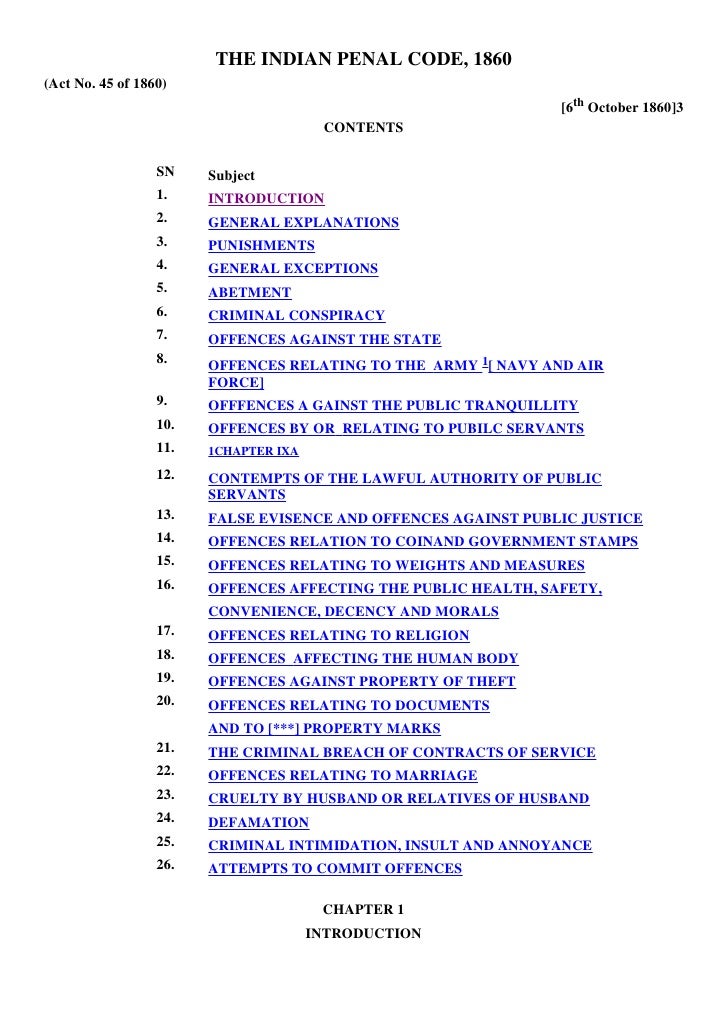Indian Penal Court


Indian Pinal Court
Article by Vijay Pal Dalmia, Advocate, Supreme Court of India and Delhi High Court, Partner Vaish Associates Advocates, India India has a well-established statutory, administrative and judicial framework for criminal trials. Indian Penal laws are primarily governed by 3 Acts: • The Code of Criminal Procedure, 1973 (Cr.P.C.); • The Indian Penal Code, 1960 (IPC); • The Indian Evidence Act, 1872 (IEA). Is a comprehensive and exhaustive procedural law for conducting a criminal trial in India, including the manner for collection of evidence, examination of witnesses, interrogation of accused, arrests, safeguards and procedure to be adopted by Police and Courts, bail, process of criminal trial, method of conviction, and the rights of the accused for a fair trial. The procedure for a criminal trial in India, is primarily, except as otherwise provided, governed by The Code of Criminal Procedure, 1973 (Cr.P.C.). IPC is the primary penal law of India, which is applicable to all offences, except as may be provided under any other law in India. IEA is a detailed treaty on the law of 'evidence', which can be tendered in trial, manner of production of the evidence in trial, and the evidentiary value, which can be attached to such evidence.